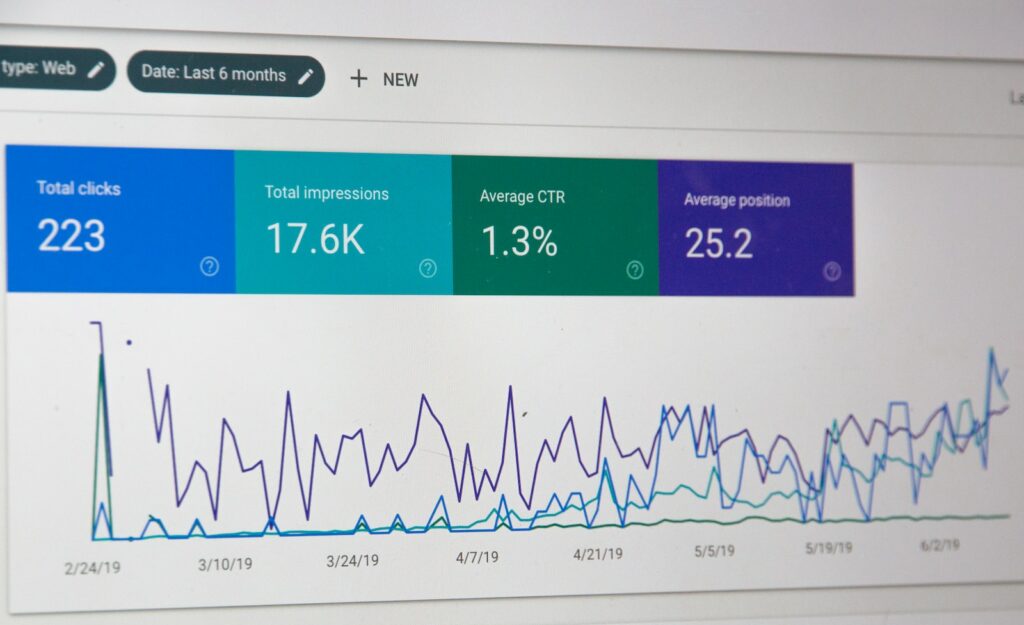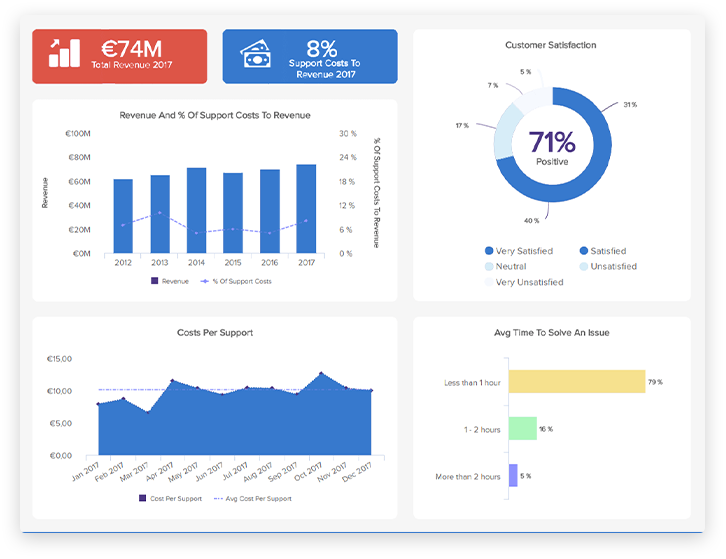A Comprehensive Guide to Law Firm Internet Marketing Strategies
In today’s fast-paced digital world, the legal industry is no exception to the necessity of adapting and evolving to remain competitive. Are you ready to harness the power of digital marketing to transform your law firm’s online presence and attract new clients? Let’s dive into the world of law firm internet marketing strategies and discover how to effectively navigate the ever-changing landscape of digital marketing solutions.
Key Takeaways
- Results are based on case or consultation revenue, NOT leads or potential cases.
- Law firms need to embrace digital marketing in order to reach their target audience, grow their business and stay relevant in the sea of competition.
- Optimizing for SEO, leveraging social media, crafting engaging content, implementing PPC advertising campaigns and utilizing analytics tools are essential components of successful law firm internet marketing strategies.
- Monitoring performance metrics regularly is key for measuring success and adjusting strategies based on data insights.
The Evolution of Law Firm Internet Marketing

Gone are the days of relying solely on traditional print ads and word of mouth to promote your law firm. As the digital age progresses, an effective online presence becomes increasingly important for law firms to thrive and stay ahead of the competition. A solid digital marketing strategy enables law firms to:
- Achieve their goals
- Attract potential clients on a wider scale
- Increase their visibility
- Build credibility and trust
- Engage with their target audience
- Generate leads and conversions
By implementing a comprehensive legal digital marketing strategy, law firms can effectively reach their target audience and grow their business in the digital landscape.
The legal industry has seen a significant shift from traditional marketing methods like billboards and newspaper ads to digital platforms such as social media, search engines, and online advertising. This transition emphasizes the need for law firms to adapt their marketing efforts and embrace digital marketing for lawyers to reach their target audience and provide valuable legal services.
From Print Ads to Digital Platforms
Traditional marketing methods like billboards, bus bench ads, and phone book advertising are no longer as effective for law firms. Instead, digital marketing channels have become increasingly important, enabling law firms to connect with potential clients who are already searching for legal services online. Transitioning from print ads to digital platforms can be effectively achieved by law firms through leveraging various digital marketing services, such as:
- SEO
- PPC
- Newsletters
- Social media management
These services allow law firms to stay relevant in the competitive legal market.
A prospective client who undertakes an in-depth exploration of a law firm’s website, Facebook page, and Youtube channel will gain a more comprehensive understanding of the firm than one who only encounters its advertising. This highlights the need for law firms to invest in digital marketing solutions that not only reach a wider audience but also provide valuable information and establish trust with potential clients.
The Growing Importance of Online Presence
In the digital age, a strong online presence is essential for law firms to draw in and maintain clients. Law firms can create satisfying customer experiences and foster trust with clients that can lead to positive reviews, referrals, and repeat business by establishing goals and implementing effective online marketing and internet marketing strategies. By focusing on their internet marketing efforts, law firms can ensure a successful online presence.
Research indicates that 93% of customers read online reviews prior to engaging with a business, and 91% of potential clients aged 18-34 perceive online reviews to be as reliable as personal recommendations. This underscores the significance of cultivating a positive online reputation for law firms, as it can greatly impact their ability to attract new clients and maintain a strong presence in the competitive legal market.
Building a Robust Law Firm Website

A well-designed law firm website is crucial for enhancing business credibility and providing a strategic introduction to the services offered. Prioritizing user experience and integrating essential features can make the difference between engaging potential clients and losing them to competitors.
A robust website for a law firm serves multiple purposes:
- Showcasing the law firm’s expertise
- Serving as a platform for potential clients to access valuable information and resources
- Establishing the law firm’s credibility as a dependable source of legal information
- Fostering trust with potential clients by providing free information online.
Designing for User Experience
A visually appealing and user-friendly website is of great importance for law firms, as it can engage potential clients and encourage them to explore the firm’s services. Ensuring that the website is properly indexed and ranked is necessary for optimizing a law firm’s website for search engines.
Incorporating distinct calls to action on each page of a law firm website can guide potential clients toward taking the desired action, such as requesting a consultation or signing up for a newsletter.
Implementing the following elements can enhance the readability of website content:
- Headers
- Paragraph breaks
- Bullets
- Images
Adhering to SEO best practices can improve search engine visibility and attract targeted traffic.
Integrating Essential Features
The integration of essential features such as contact forms, live chat, and informative content can enhance a law firm website’s functionality and appeal. These features can make it easier for potential clients to get in touch with the firm, ask questions, and ultimately retain their services.
Constructing backlinks to your website on lawyer directories can also enhance your SEO visibility. Some benefits of listing your law firm on directories like Justia include:
- Increased likelihood of your profile appearing higher in search results
- Improved visibility to potential clients
- Enhanced credibility and trustworthiness
- Increased traffic to your website
- Opportunities for networking and collaboration with other lawyers
These factors can contribute to the overall success of your law firm’s digital marketing efforts.
Mastering Search Engine Optimization (SEO) for Law Firms

Mastering SEO is vital for law firms to rank higher in search engine results and attract potential clients. Law firms can improve their visibility in search engine results pages (SERPs) and make it easier for prospective clients to find their services by optimizing website content and structure.
SEO not only facilitates the ability of prospects to locate attorneys but also provides a multitude of other advantages, such as:
- Capturing leads that are already searching for legal services
- Increasing visibility
- Climbing search engine rankings
- Driving targeted traffic to their website
Law firms can achieve these benefits by engaging a specialized law firm digital marketing agency to build brand awareness and optimize SEO.
Keyword Research and Implementation

Conducting keyword research and implementing targeted keywords can improve a law firm’s search engine rankings, making it more likely for potential clients to find their services. Some important steps to optimize a law firm’s website for search engines include:
- Ensuring that the website is coded well
- Submitting the website to search engines and updating it regularly
- Structuring the website in a way that makes sense to both humans and search engine bots
By following these steps, a law firm can improve its search engine visibility and attract more potential clients.
In addition to on-page optimization, off-page SEO plays a crucial role in a law firm’s digital marketing success. Properly implemented off-site attorney SEO techniques will help to establish your law firm as an authoritative source. Some key off-page SEO techniques include:
- Building high-quality backlinks from respected websites
- Guest blogging on relevant industry websites
- Participating in online forums and communities
- Engaging with social media influencers in your niche
Respected websites citing your content is an assurance to Google and other search engines of the quality of your page. It helps them recognize it as a reliable and trustworthy source of information.
On-Page and Off-Page SEO Strategies

On-page SEO involves optimizing content on a website to increase its visibility in search engine results, while off-page SEO involves actions on other sites that make your website more visible, such as link building and social media engagement. Law firms can further optimize their online presence and visibility, ensuring that they remain competitive in the legal market, by employing both on-page and off-page SEO strategies.
Link building is the process of increasing the number of backlinks to a website, which can help boost organic website traffic. When a website has high-quality content and its on-site marketing techniques are sound, other websites will naturally link back to it without any additional effort, creating a positive feedback loop. This can lead to increased website popularity and a higher search engine ranking, making it easier for potential clients to find your law firm online.
Harnessing the Power of Social Media Marketing

Social media marketing provides law firms with the opportunity to:
- Connect and interact with prospective clients
- Build a community
- Increase brand recognition
- Publish content
- Reach their target audience effectively
- Showcase their expertise
- Foster trust with potential clients
By leveraging various social media channels, law firms can maximize their online presence and attract more clients.
In addition to its role in PPC campaigns, social media marketing can also complement organic content marketing endeavors, particularly in the short run while constructing content and reinforcing organic SEO. By utilizing social media platforms such as Facebook, LinkedIn, and Instagram, law firms can connect with potential clients on a more personal level, demonstrating their expertise and building trust through engaging content.
Choosing the Right Social Media Channels
Selecting the right social media channels is essential for reaching the target audience and maximizing engagement. Each social media platform has its own unique features and intended audience, making it crucial to consider the type of content you wish to share and the audience you wish to reach when selecting the most suitable channels for your law firm.
Understanding the preferences and needs of your target audience enables you to:
- Choose the most effective social media channels for your law firm
- Create a plan that encompasses the type of content to be shared
- Determine the frequency of posts
- Set objectives you wish to accomplish
This can help ensure that your social media marketing efforts are not only reaching the right people but also effectively engaging and building trust with potential clients.
Crafting Engaging Content
Creating engaging content is critical for establishing trust with potential clients and positioning a law firm as a reliable source of legal information. This can include:
- Blog posts
- Videos
- Podcasts
- Other forms of multimedia
These forms of content provide valuable information to clients while also showcasing the firm’s expertise.
To create effective and engaging content, law firms should prioritize providing value to their audience, incorporate visuals to supplement the content, and optimize content for search engine visibility. By regularly monitoring website traffic, analyzing user engagement, and observing conversions, law firms can assess the effectiveness of their content marketing initiatives and make data-driven decisions to improve their digital marketing strategies.
Implementing Pay-Per-Click (PPC) Advertising

Pay-Per-Click (PPC) advertising is a form of online advertising wherein a business pays a host upon a user’s click on their ad on the platform. For law firms, PPC ads can complement organic content marketing endeavors, particularly in the short run while constructing content and reinforcing organic SEO.
While PPC advertising can generate leads quickly, it is essential to understand costs and optimize campaigns for maximum ROI. By carefully selecting PPC keywords, crafting convincing ad copy, and experimenting with various ad formats, law firms can enhance their visibility, increase brand recognition, and achieve higher conversion rates.
Understanding PPC Costs and Bidding
PPC costs for law firms depend on ad relevance, keyword bidding, and commercial intent, making it crucial to optimize campaigns for cost-effectiveness. The cost of a PPC campaign can fluctuate depending on the commercial intent of the advertisement and the success of the bid for a specific keyword.
To reduce the expense of your PPC campaign, you can:
- Refine your ad copy
- Target the appropriate audience
- Bid on the relevant keywords
- Adjust your budget
- Closely track ROI
By implementing these strategies, you can ensure that your PPC campaign is both effective and cost-efficient, helping your law firm attract targeted traffic and generate new clients.
Optimizing PPC Campaigns for Maximum ROI

Regularly monitoring and adjusting PPC campaigns can help law firms achieve the best possible ROI. By tracking performance metrics such as click-through rate, cost-per-click, and conversion rate, and adjusting bids and budgets based on performance, law firms can make informed decisions about their PPC campaigns and maximize their return on investment.
Some of the most effective strategies for optimizing PPC campaigns to achieve maximum ROI include:
- Establishing realistic objectives
- Researching keywords
- Crafting convincing ad copy
- Experimenting with various ad formats
By leveraging these strategies and making data-driven decisions, law firms can enhance their visibility, increase brand recognition, and achieve higher conversion rates.
Content Marketing for Law Firms

Content marketing can help law firms in the following ways:
- Demonstrating their expertise
- Building trust with potential clients
- Establishing themselves as experts in their field
- Providing informative, relevant content that addresses clients’ common questions
- Outlining outcomes and advice pertaining to particular cases
By working with a digital marketing agency, law firms can:
- Expedite content marketing
- Alleviate the responsibility of sourcing writers and editing content
- Focus on their legal expertise
- Entrust the complexities of marketing strategy to experienced professionals
- Create compelling content that resonates with their target audience
Creating Informative and Engaging Blog Posts
Creating informative and engaging blog posts is essential for establishing a law firm as a reliable source of legal information and fostering engagement with prospective clients. By researching topics, incorporating visuals, and optimizing for SEO, law firms can create effective blog posts that not only showcase their expertise but also address the needs and concerns of their target audience.
Evaluating the effectiveness of blog posts can be accomplished by monitoring website traffic, analyzing user engagement, and observing conversions. By leveraging these insights, law firms can adjust their content marketing strategies to better resonate with their target audience and improve their overall digital marketing efforts.
Leveraging Video and Podcasts
Leveraging video and podcasts can further enhance a law firm’s content marketing strategy and reach a wider audience. Video content can be leveraged to create captivating visuals, while podcasts can be employed to provide audio content that engages and informs potential clients about various legal topics.
To create and promote video and podcast content, law firms can follow these steps:
- Research and plan the content
- Create the content
- Optimize it for search engine visibility
- Promote it through social media and other channels.
By utilizing video and podcasts in their content marketing efforts, law firms can broaden their reach, boost engagement, and foster trust with their audience.
Email Marketing as a Client Retention Tool

Email marketing can be an effective tool for retaining clients and keeping them engaged with the law firm. Law firms can maintain contact with clients and encourage them to utilize their services for future legal needs by developing custom email lists and crafting engaging email campaigns.
In addition to its role in attracting new clients, email marketing can also serve as a valuable client retention tool for law firms. By providing helpful and informative content through email campaigns, law firms can foster trust with their clients and stay top-of-mind for future legal needs.
Building an Email List
Building an email list is essential for maintaining contact with current and potential clients. Law firms can effectively build and grow their email lists by providing incentives, such as discounts or free content, for signing up and leveraging social media and other digital marketing tactics to reach potential customers.
In order to maintain contact with existing and prospective clients, law firms can utilize email campaigns, newsletters, and other forms of communication. Regularly monitoring and adjusting these campaigns based on performance metrics such as open rates, click-through rates, and conversion rates can help ensure that law firms are reaching the right people and effectively engaging with their target audience.
Crafting Effective Email Campaigns
Crafting effective email campaigns is essential for law firms to keep clients engaged and encourage them to utilize their services. Law firms can create email campaigns that resonate with their clients and generate positive results by utilizing a concise and attention-grabbing subject line, keeping the email copy concise and scannable, and including a clear and direct call-to-action.
Utilizing analytics tools such as Google Analytics, heat maps, and A/B testing can help law firms monitor the performance of their email campaigns and make data-driven decisions to improve their digital marketing strategies. By regularly analyzing and adjusting their email campaigns based on performance, law firms can ensure that they are reaching the right people and effectively engaging with their target audience.
Monitoring and Measuring Digital Marketing Success

Monitoring and measuring digital marketing success is crucial for law firms to make data-driven decisions and adjust strategies accordingly. Law firms can identify areas for improvement and implement modifications that will maximize their return on investment by utilizing analytics tools and assessing the performance of their digital marketing efforts.
With the advent of AI and specialized tools, law firms can leverage data-driven strategies to optimize their digital marketing efforts and achieve success in the competitive legal market. Regularly monitoring and adjusting their digital marketing strategies based on data allows law firms to effectively engage with their target audience and provide valuable legal services.
Utilizing Analytics Tools
Utilizing analytics tools can help law firms track the performance of their digital marketing efforts and identify areas for improvement. Law firms can analyze data and recognize trends and patterns in their digital marketing efforts by leveraging tools such as Google Analytics, heat maps, and A/B testing.
These insights can be invaluable for making data-driven decisions and adjusting digital marketing strategies to better resonate with the target audience and improve overall performance. By regularly monitoring and analyzing their digital marketing efforts, law firms can optimize their strategies and ensure that they are effectively engaging with their target audience and providing valuable legal services.
Adjusting Strategies Based on Data
Adjusting strategies based on data can ensure that law firms continue to grow and succeed in the competitive legal market. Law firms can make informed decisions about their marketing strategies and ensure that they are targeting the appropriate audience and providing valuable legal services by leveraging the insights gained from analyzing data.
For example, by analyzing website traffic, engagement, and conversions, law firms can identify which types of content resonate most with their target audience and adjust their content marketing strategy accordingly. This data-driven approach can help law firms optimize their digital marketing efforts and achieve greater success in attracting and retaining clients.
Summary
In conclusion, the legal industry must embrace the digital age and adapt their marketing strategies to remain competitive. By leveraging various digital marketing solutions, such as SEO, social media marketing, PPC advertising, content marketing, email marketing, and analytics tools, law firms can effectively engage with their target audience, showcase their expertise, and foster trust with potential clients. By continuously monitoring and adjusting their digital marketing efforts based on data, law firms can optimize their strategies and ensure continued growth and success in the competitive legal market.
Frequently Asked Questions
How do I market my law firm on the Internet?
Create a well-designed law firm website, optimize it for search engine visibility, make sure you have free online profiles, have a social media presence, create a marketing budget, generate content, advertise online, get listed in local directories, and develop your personal brand to effectively market your law firm on the internet. Ensure that your website is compliant with the Americans with Disabilities Act (ADA) by making it accessible to individuals with disabilities. You can refer to the Web Content Accessibility Guidelines (WCAG) for ADA compliance standards. Additionally, it’s essential to adhere to the marketing and advertising guidelines set forth by your state’s Bar Association. You can usually find these guidelines on your state’s Bar Association website.
What is digital marketing for law firms?
Digital marketing for law firms is the act of selling services online through search engines, websites, social media, and mobile apps. User engagement is key to make an impact with modern-day digital marketing strategies.
Do law firms need digital marketing?
Given the benefits of digital marketing for targeted outreach and increased client numbers, it’s clear that law firms need digital marketing in order to be competitive in the market. Without a strategic digital marketing plan, law firms will struggle to reach their desired audiences and could miss out on potential business opportunities.
What is the role of a law firm in digital marketing?
A law firm’s role in digital marketing is to help develop branding and objectives, as well as verifying milestones for their internet marketing.
How can law firms effectively segment their email lists and customize content to specific target audiences?
Law firms can effectively segment their email lists and customize content to specific target audiences by leveraging demographics, interests, or past behaviors. This will enable them to provide personalized content that is relevant and engaging for the audience.







